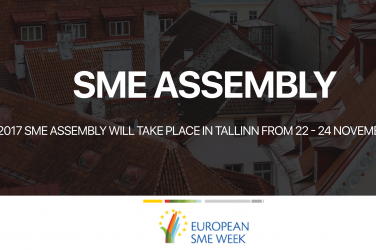As many countries’ rural areas are facing the same contemporary societal challenges, such as a tightening economy and diminishing local services, there is a need to find new tools for rural communities to cope with the future.
Rural areas are competing in terms of population numbers with urban communities. According to the World Bank (2017), rural communities in the project country partners represent up to 46% and about 40 million people are living in rural areas. In some European countries, the population in rural areas has decreased (in Germany the rural population decreased from 29% to 23%), one cause is the migration to the city for economic and other reasons. In urban areas in 2015, the EU-unemployment rate was 10.0 %, higher than in rural areas (EU-unemployment: 9,1%). This is not the case in Estonia and Romania where unemployment is higher in rural areas.
For both situations, a potential solution for keeping people employed in rural areas can be social entrepreneurship, a business model with a strong social goal where profits are reinvested back into the local community. There is much local potential, embedded knowledge and skill in rural communities to improve local service provision and employment, but the people usually do not recognize this or know how to make full use of it. The concept of social entrepreneurship is, however, relatively novel in rural development across much of Europe. This is why there is a need to raise the capacity of local people to better address the community potential and needs by increasing their knowledge and skills of community activation, partnerships and networking, business thinking and recognizing the social impacts of social entrepreneurship in local communities.

The “ViSENet: Village Social Enterprise learning material, guidance and networking” project to promote social entrepreneurship in rural areas is aimed to individuals who are interested in developing and sustaining their rural communities, who are willing to consider socially enterprising solutions to assist their rural areas or individuals who already have an idea for social enterprise in rural areas, as well as individuals already engaged in social enterprise activity but wish to gain new skills, knowledge and expertise to assist them in their venture. Nearly 300 participants from rural communities located in Estonia, Finland, Germany, Romania, and Scotland will be engaged in learning activities throughout the project, will be engaged in learning activities throughout the project in which entrepreneurial solutions will be identified to solve local community needs with local resources.
The project outcomes will include:
- a learning material structured in three learning modules: community activation and participation methods in rural areas – partnerships and networking of social entrepreneurs – social enterprise solutions for sustaining rural communities and measuring social impact;
- an International Network of Rural Social Enterprises to give the members peer support, advice and a platform to exchange information and good practices to keep the process ongoing;
- a practical Guidebook of Good Practices: the experiences gained through national pilot groups will be written into an e-guidebook of good practices for further use targeted at both learners and educators as well as policy makers.
All products and materials will be available and accessible online to all people interested in social entrepreneurship and community development, throughout the project duration, from December 3rd, 2018 to June 2nd, 2021.
The project is funded by EU Erasmus+ Strategic partnership for adult education. The Finnish National Agency for Education is hosting the national agency for the European Union’s education and youth programmes.












Show Comments